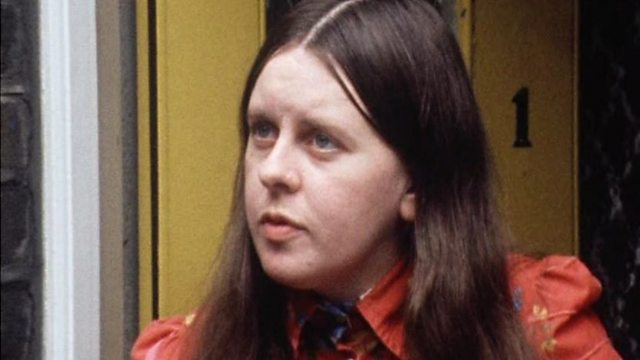
MP Bernadette Devlin does not expect to be interned
Bernadette Devlin does not expect to be interned because she believes the government will not intern Members of Parliament.
Interviewed before leaving London for Northern Ireland, where she is due to address a protest rally in Omagh, the Unity MP for Mid-Ulster Bernadette Devlin tells the ���˿��� she does not expect to be interned. She believes the recent statement by the Unionist Prime Minister, Brian Faulkner, makes it clear that the army not only has a right to shoot people on the suspicion that their politics do not agree with those of the state but they can intern people who speak out against the politics of the state.
Context
In the early hours of Monday morning, 9 August 1971, the Army and police set off in a widespread series of arrest operations in towns around Northern Ireland. During the first morning of ‘Operation Demetrius’, 342 people were arrested; just over a hundred of them were released two days later. The detainees were imprisoned in Crumlin Road Prison and on the Maidstone, a soldiers’ billet turned into a prison ship, at Belfast docks.
The Prime Minister, Brian Faulkner, had been facing mounting criticism of his security policies from within his own party, and felt that his only option was to introduce internment without trial to counteract IRA attacks. It was a tactic that he had used successfully against the IRA during the late 1950s; but in 1971, it proved a serious security and political blunder. This time the security forces were operating on out-dated RUC intelligence. In addition, internment intensified the violence. In the three days following the introduction of internment 25 people were killed, the majority shot by the Army. The Parachute Regiment was responsible for 11 deaths in the Springfield area in Belfast alone, including Father Hugh Mullan, shot while administering the last rites to an injured man and Joan Connolly a mother of eight; about 240 houses in Ardoyne were destroyed by fire; a member of the UDR was shot dead in Co Tyrone; and Londonderry experienced protracted rioting as more than 30 barricades were put up in the Creggan and the Bogside.
Most of the new leadership of the IRA escaped the army raids, and – with the exception of two Protestant civil rights activists, Ronnie Bunting and John McGuffin – the measure was used exclusively against the Catholic community. The fact that no loyalists were arrested increased the Catholic community’s sense of grievance. Subsequent allegations of torture against the people arrested led to an upsurge in recruitment to the IRA and an increase in sympathy and finance for the IRA at home and abroad, particularly from some among the substantial Irish-American community in the United States.
Up to 9 August, 34 people had died in the violence that year. Only three days after the introduction of internment, 25 more people had been killed. Among the dead was Winston Donnell, the first member of the Ulster Defence Regiment to be killed. Thousands of people had been forced to leave their homes in Belfast because of sectarian attacks and many Belfast Catholics left the city for refugee camps across the border.
In the first six months of internment, nearly 2,400 people were arrested; of these 1,600 were released after interrogation. The Army admitted years later that internment was a major mistake.
Duration:
This clip is from
More clips from ���˿��� News
-
![]()
Peace deal is done in Northern Ireland—10/04/1998
Duration: 05:41
-
![]()
Key stages leading to Good Friday Agreement—10/04/1998
Duration: 02:59
-
![]()
Reaction to Good Friday Agreement—10/04/1998
Duration: 04:08
-
![]()
Good Friday Agreement—10/04/1998
Duration: 01:32





